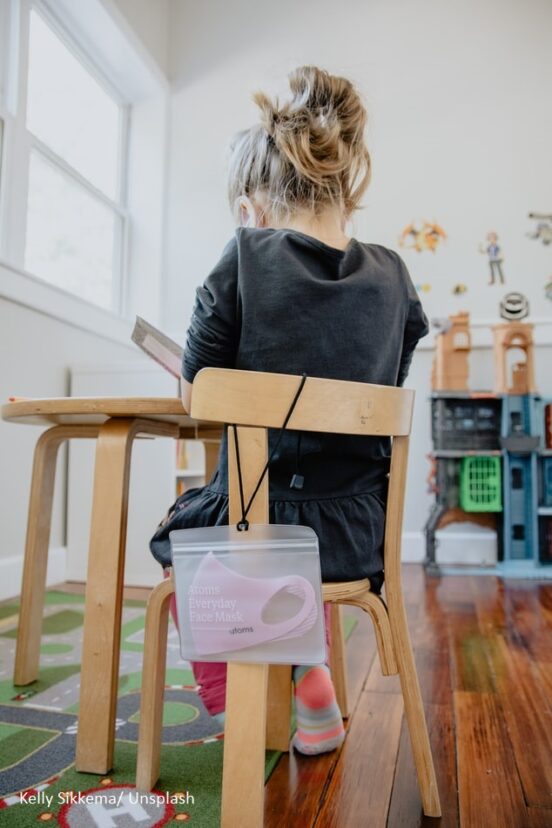Caregivers of children with intellectual disabilities (ID) are more vulnerable to mental health difficulties when compared to carers of typically developing (TD)children. Intellectual disabilities are characterised by adaptive skill deficits, which can be associated with challenging behaviours (i.e. verbal and/or physical aggression, self-injury, disturbed sleep, and destructive tendencies).
Challenging behaviours should not be viewed negatively since they indicate levels of severe mental stress and distress reactions in those with intellectual disabilities. These behaviours are exacerbated by disruption to day-to-day routines (adaptive functioning), or restrictions on enjoyed activities and are conditional on the level of disability. Therefore, the COVID-19 pandemic and lockdown arrangements are likely to have triggered or exacerbated these factors.
It is important to examine how lockdown restrictions to education, respite and support services (all factors that are known to reduce caregiver stress) will impact both the carer coping strategies and children’s challenging behaviours. Indeed, there has been evidence showing an increase in requests for psychotropic medication across Intellectual Disability services to manage children’s challenging behaviour during the pandemic. This may indicate changes in the child behaviours or caregivers’ perceptions of coping. It is therefore, crucial to understand the impact of the COVID-19 restrictions on both children’s challenging behaviours and caregivers’ coping strategies.
We invited caregivers to complete an online survey that recorded demographic data, as well as questionnaire data measuring children’s challenging behaviours, caregiver coping strategies and caregiver psychological distress. We also invited the parents to respond to open ended questions.
Caregivers of children who were typically developing (n = 67) and those who had intellectual disabilities (n = 43) took part.
We looked at relationships between the data and also carried out a thematic analysis on the open text responses.
The results showed that levels of children’s challenging behaviours were related to psychological distress (showing that both children’s and parents stress levels were related). In addition to children’s challenging behaviours, parental coping strategies (specifically denial and behavioural disengagement) posed an additional risk for caregiver psychological distress. This shows that how children and their caregivers responded to the stressful external events impacted caregiver mental health.
Responses from the open text questions on the survey were also analysed and some common themes emerged.
Theme 1. Confusing messages and guidance:
Caregivers who had children with Intellectual Disabilities (ID) struggled to understand the media messages and communicate it to their children
“I can say ‘no school, we need to stay safe’ but what exactly does that mean if you have no concept of a virus, of time, of school not being there, or if it will ever be there again.” (Caregiver 1).
Theme 2. Loss of freedom:
Children and carers experienced a loss of freedom in terms of not being able to do favourite things, activities—the loss of seeing friends and family, and for some individuals no longer being able to leave the house. Many of the respondents reported the negative impact of a loss of structure, routine and activities.
“lack of routine, lack of going places, lack of activities he can do.”(Caregiver 2).
Theme 3. Unsupported and Forgotten:
Carers reported a sense of feeling unsupported and forgotten during the pandemic and lockdown, and highlighted a perceived absence of support from social, health and education services. There was a general feeling that they have been left on their own to meet complex educational, sensory-related, medical and social care needs:
‘I was frustrated with restrictions on food purchases e.g. for restrictive diet I needed more than 3 of some items to get him fed for one week – I almost cried.’ (Caregiver3).
and
‘a lack of support from specialist services. No check-ins.’ (Caregiver 4).
The results show that parental coping strategies pose an additional risk for psychological distress. Specifically high levels of denial (avoidance of the situation) and behavioural disengagement (reduction of efforts during difficult situations/giving up). in caregivers lead to higher levels of psychological distress. Since coping strategies can be changed, supporting caregivers in employing different and adaptive coping strategies has potential benefits throughout the transition out of covid-19 restrictions.
In addition the reduced social support, respite and clinical services were also detrimental to caregiver’s mental health. As we return to typical routines and normality both caregivers and their children with ID require targeted interventions and support to reduce the negative mental health outcomes associated with the COVID-19 lockdown. Lessons must be learned, support gaps need to be understood and our vulnerable groups require protection as society recovers.
Karri Gillespie-Smith is a Developmental Psychologist interested in linking core social and cognitive constructs to mental health outcomes in typical and atypical development. She joined the Department of Clinical Psychology, University of Edinburgh as a lecturer in 2019. Please do contact her – Karri.Gillespie-Smith@ed.ac.uk if you would like to hear more about this research or be involved.





Comments by Hashemi